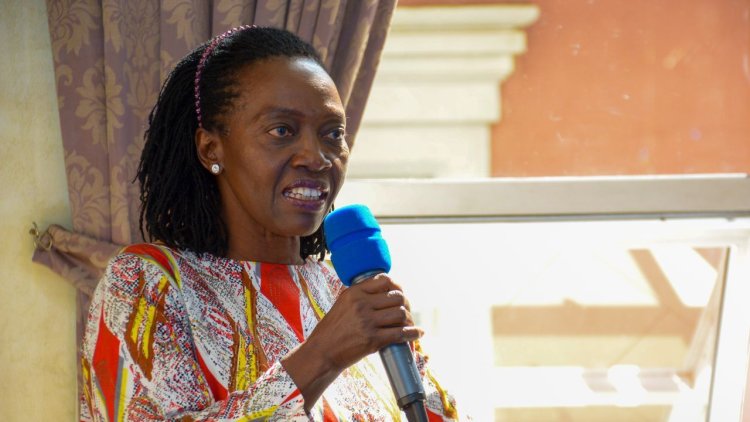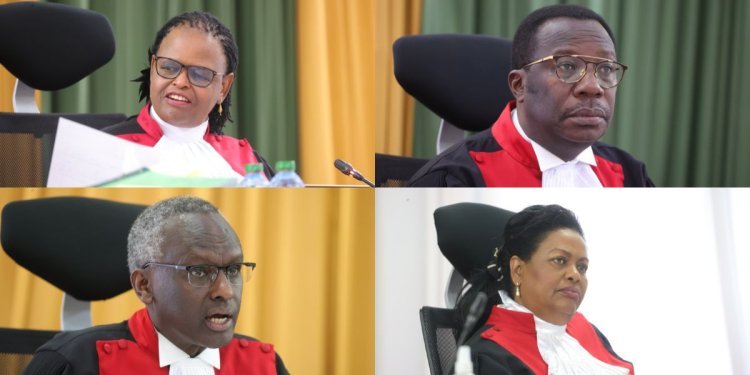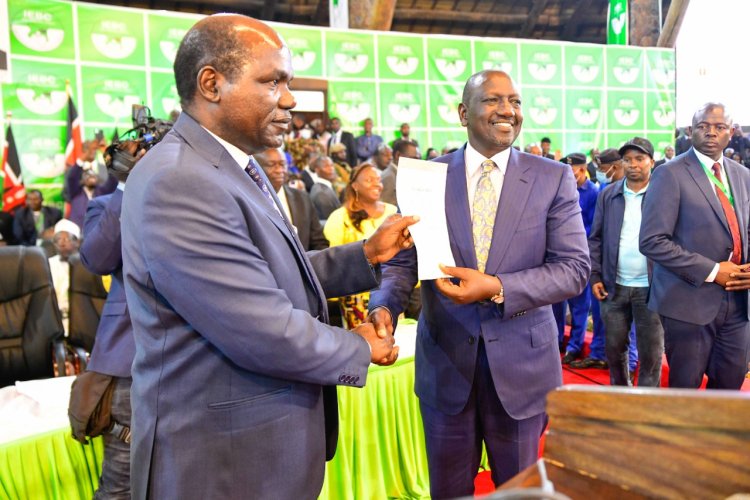Martha Karua Moves To Tanzania To Contest Supreme Court Ruling
Karua complained that the recommendations made by the apex court on reforming the IEBC were less effective as the existing mistakes were not punished.

Former Azimio la Umoja One Kenya coalition presidential running mate, Martha Karua, has honoured her promise and moved to the East African Court of Justice (EACJ) in Tanzania to challenge the Supreme Court verdict that validated President William Ruto’s win.
Karua was enjoined by Muslims for Human Rights (MUHURI) director, Khalif Khelef. They wrote to the court on Friday, November 4 contesting the apex court's dismissal of seven petitions that challenged the validity of Ruto's election.
They argued that the issues they had raised in the petitions regarding the August 9 elections were not addressed in the court.

A collage of Supreme Court judges. /COURTESY
"We are filing this reference not only to enable the truth to come to light but also so that we can secure guarantees of non-recurrence of failures in this sensitive area of elections in the future.
"We took our dispute to the Supreme Court, hoping for a fair hearing. However, it undermined the rule of law by violating the right to a fair trial," read court documents in part.
The petitioners added that the ruling made on Monday, September 5 failed to consider the Independent Electoral and Boundaries Commission's (IEBC) failure to properly manage the elections by withholding critical aspects of the process such as the electoral technology and results management to persons it had no power over.
They further claimed that unauthorised persons accessed, deleted and uploaded election results and that IEBC, which was dysfunctional, did not investigate or respond to complaints.
They also argued that the apex court failed to examine all the evidence presented before it and refused to fully inquire into the technology applied while condoning IEBC's cover-up in refusing to grant access to its technology critical to determining the matter fairly.
"The Court also found that the Chairperson of the IEBC conducted the election in an unlawful manner, but these findings, again, had no legal consequences. Our petitions were dismissed with epithets and name-calling," the documents read on.
Karua complained that the recommendations made by the apex court on reforming the IEBC were less effective as the existing mistakes were not punished.
The duo also sued IEBC, stating that it did not register eligible voters and also failed to maintain an accurate and clean Register of Voters, to publish it on time and to guarantee its integrity through a publicly available audit.
"The issues around the Register could, and did, affect the integrity of the results purported to be a razor-thin difference, announced in controversial circumstances," they stated.
They further argued that the Supreme Court refused to properly apply the law on the correct standard of proof in Kenyan election petitions and upset the rule of law by departing, without explanation, from its own precedent in the 2017 presidential election petition.

IEBC chairman, Wafula Chebukati issuing William Ruto his certificate after winning the election. /WILLIAM RUTO






